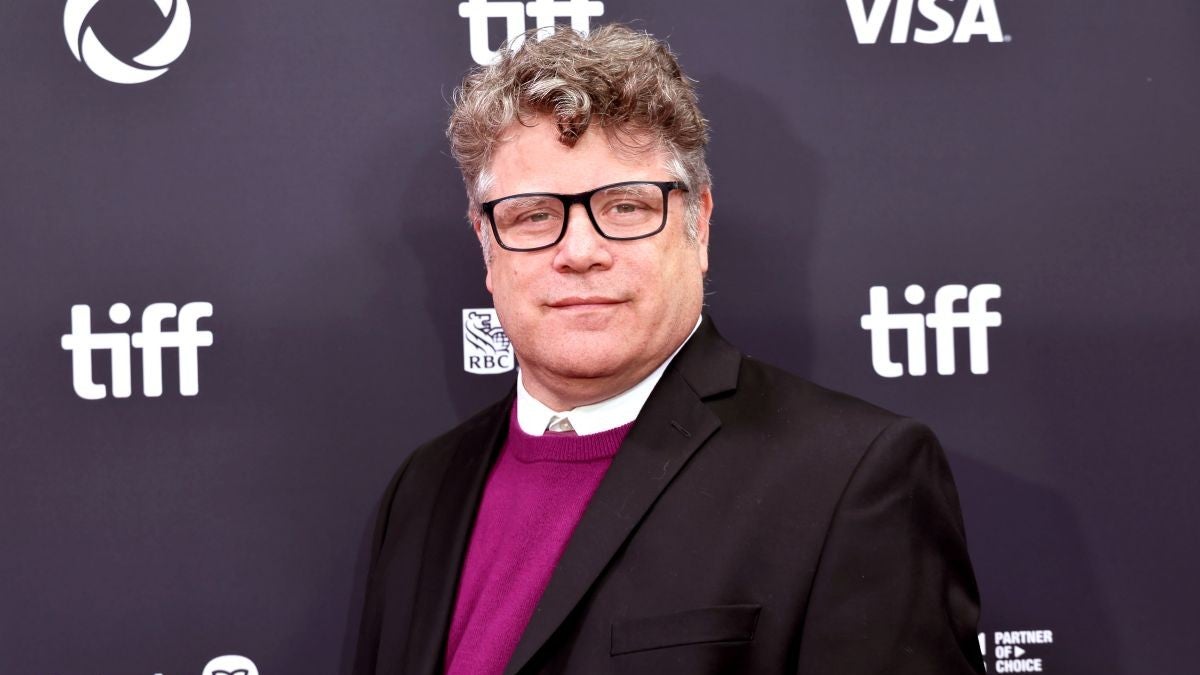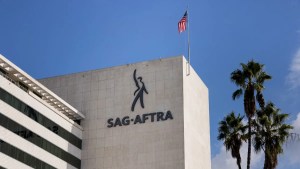SAG-AFTRA announced the results of its latest leadership and board elections on Friday evening, with longtime board and negotiating committee member Sean Astin elected as the new president of the actors’ union.
The “Lord of the Rings” actor will succeed outgoing president Fran Drescher, who led the union through the 2023 TV/Theatrical strike and 2024/25 interactive media strike. Drescher chose not to seek re-election.
Astin defeated New England local board member Chuck Slavin for the seat with 79% of votes received. Michelle Hurd was elected secretary-treasurer. Their terms begin immediately.
“Now is a time for optimism and creativity,” Astin said in a statement to press. “I am thrilled that the members have allowed me to lead our storied organization out of this challenging moment and into a future defined by confidence, progress and fierce advocacy.”
“The AMPTP congratulates Sean Astin on his election as President of SAG-AFTRA,” the organization said in a statement. “We look forward to working with President Astin to address the issues most important to SAG-AFTRA performers while promoting stability and opportunity across our industry.”
Astin will follow in the footsteps of his mother, Patty Duke, who served as president of the Screen Actors Guild from 1985 to 1988. He has served on five separate SAG-AFTRA negotiating committees, including the one for the 2023 TV/Theatrical contract, and served on both the guild’s national and Los Angeles local boards.
Friday also unveiled the results of the Los Angeles and New York local elections. In LA, Joely Fisher won her bid for local president with 67% of the vote against opponents Peter Antico and Brian Kruse. Lisa Ann Walter was elected first vice president and David Jolliffe was elected second vice president. Unopposed national board member candidate Dan Navarro also secured his seat.
In New York, Ezra Knight was elected local president with 73% of the vote against Kevin Cannon. Linda Powell was elected first vice president, Anthony Rapp second vice president, Jim Kerr third and Lizz Zazzi fourth. Janice Pendarvis, who ran unopposed, gets a New York national board member seat.
Astin and the rest of the union’s leadership have a long list of issues facing actors to address, including the next round of TV/Theatrical contract talks in the summer of 2026. Standing across the negotiating table as the head of the Alliance of Motion Picture and Television Producers will be a familiar face: Gregory Hessinger, who previously served as national executive director of SAG and AFTRA in separate terms prior to the unions’ 2012 merger.
In both those contract talks and on other political and legal fronts, SAG-AFTRA has been pushing for protections for actors when it comes to how their likeness and performance is used to create AI-generated replicas. Further negotiations around the technology and how it has recently developed are expected.
Also expected to be a part of contract discussions is the ongoing issue of compensation for streaming shows and movies. While SAG-AFTRA, along with the Writers Guild of America, negotiated landmark compensation models for top performing streaming titles that led to the end of the 2023 strikes, the union has been opaque in the following years about the development of a planned “Robin Hood” fund that would withhold 25% of streaming residuals and distribute it among a larger swath of union members who have worked on streaming projects.
Outside contract issues, there’s also the matter of SAG-AFTRA’s health plan, which since the 2020 pandemic has seen thousands of members lose their coverage, starting with retirees who were no longer able to count residuals towards their qualifying threshold and had to turn to a Medicare Advantage marketplace to receive their benefits, leading to a lawsuit that the SAG-AFTRA health plan settled for $15 million.
Since then, the number of guild members who have lost their health plan has increased due to lost work both from the strike and the production exodus from the United States to other countries that has left thousands of actors with less opportunities to work and keep their union healthcare.
Over the past year, SAG-AFTRA has lobbied as part of the Entertainment Union Coalition for the expansion of the California Film and TV Tax Credit Program, which has led the number of applications for the first round of TV production tax credits to quadruple. But it will be at least a year before any substantial impacts can be fully measured.




